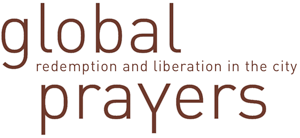Located to the south of downtown Atlanta, Hartsfield-Jackson is the world’s largest airport—an international hub processing some 95 million passengers each year through 200 gates. Although the majority of travelers are flying on domestic routes within the United States itself, the airport provides countless connections to other continents, for example, to the Nigerian metropolis of Lagos. This direct flight between Atlanta and its West African sister city has been one unalloyed success story since its inception in 2007: in the first six years, some 600,000 passengers have flown this route and it is expected to retain its high capacity. Not only has the buoyant transatlantic traffic impacted favorably on the respective business sectors and boosted economic ties, it has also left its mark on religious life in both metropolises: three of the most influential Nigerian Pentecostal churches, the Redeemed Christian Church of God, the Gospel Faith Mission International, and the Mountain of Fire and Miracles, all headquartered in Lagos, are regularly sending middle and senior management staff into the metropolitan area of Atlanta or Metro Atlanta to undertake missionary work—primarily among the large Nigerian ex-pat community. And although physical mobility in the digital age is no longer prerequisite for the transnational expansion of faith communities, human ambassadors are now being deployed for this “reverse mission.”
Boasting a population of 420,000, Atlanta, the capital of the federal state of Georgia, is known as the “capital of the south.” Its significance as a major transport hub traces as far back as 1837, when it formed the terminal station of the “Western and Atlantic Railroad,” which connected Atlanta to Chattanooga in Tennessee. During the American Civil War, large parts of the city were destroyed by Union troops. Since 1892, the soft drinks manufacturer Coca-Cola has been based here, and the metropolis is also home to the headquarters of numerous banks and international corporations. Almost 5 million people live in the metropolitan area, whose suburbs in the past ten years have been subject to unchecked sprawl. As the infrastructure has been unable to keep pace with this growth, the car has remained until the present day the most popular means of transport. Atlanta is also a city of migration and is still regarded as the region’s economic engine, although growth has slackened considerably since the financial crisis. Over the past decade, poverty has even intruded into the otherwise affluent suburbs. Around the turn of the Millennium, shortly after Atlanta hosted the Olympic Games in the summer of 1996, the term the “Atlanta Paradox” came into common parlance to describe the phenomena of unparalleled economic growth coinciding with persistent poverty among the black population. This was all the more surprising in a city which counted among its sons Martin Luther King Jr., a chief protagonist of the civil rights movement, and which is hailed both as a “city too busy to hate” and the “Mecca of the black middle classes.”
With the notable exception of Atlanta itself, the state of Georgia is a poor, rural region, lying at the heart of the so-called “Bible Belt,” which extends from Texas in the southwest and Kansas in the northwest to Virginia in the northeast and Florida to the southeast. And it has earned this moniker for good reason. Alone in Georgia, which has a population of 10 million people, there are 12,000 church parishes with some 3.3 million active members. Decatur, an eastern suburb of Atlanta, has even adopted the advertising slogan of “City of homes, schools, and places of worship.” Baptists, Methodists, Pentecostals, Presbyterians, Episcopalians—the majority dedicated to combating “the sins” of abortion, contraception, homosexuality, and gambling. At the same time, their role in public life has assumed ever greater importance. Parish members distribute foodstuffs to the needy, care for the elderly, and organize extra tuition for school children.
In the southern states, religious zeal is often wedded to a certain aversion against the state or “big government.” This has kindled the widespread notion that charitable church institutions are far more suitable for solving social problems than government agencies.
